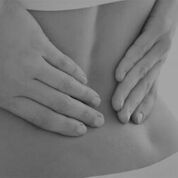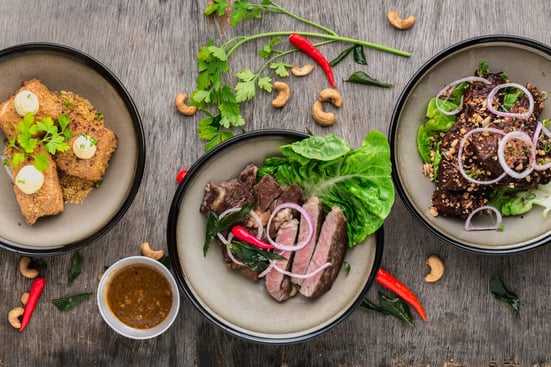I have learned that I have to listen to patients’ structural, emotional, and digestive issues to get to the truth of back pain. While there are thousands of studies on how nutrition impacts muscular function, very few health professionals have connected the dots from digestive function and nutrition back to back pain. In one study published by the Asian Spine Journal in 2014, 31% of women and 24.6% of men who were suffering from back pain also suffered from gastrointestinal complaints such as abdominal pain or food intolerance.
You Are What You Eat
Whether it’s too much coffee, too many sweets or a host of other edibles, certain foods can agitate your digestive system and chemically induce back pain. With dietary issues, we are looking for either changes in the chemical system or repetitive patterns that can result in back pain. Hormonal changes also fall into the digestive category and can influence back pain.
My full digestive back pain assessment (along with structural and emotional assessments) can be found in 3 Weeks to A Better Back, or you can find your score by taking the assessment here. For starters, below I have listed a few questions that will help you start to assess if digestive and hormonal factors are contributing to your back pain –
- Have you been constipated recently?
- Have you had an increase in gas?
- Have you recently changed your diet?
- Have you increased your fiber intake?
- Do you eat five or more cups of fruits and vegetables a day?
- Have you consumed more than four alcoholic beverages in one sitting in the last week?
- Do you eat at your desk?
- Do you use artificial sweeteners?
- Did you just begin your menstrual period or have you recently started menopause?
Depending on your answers to the complete survey, you will fall into one of the following three categories:
- You are at low risk for digestive causes of back pain, and the origin of your pain is likely structural and/or emotional.
- You are at moderate risk, which means digestive issues are probably contributing to your back pain. To you to reduce your internal inflammation, you could find some relief by trying The Back Pain Relief Diet and identifying and eliminating foods that are particularly irritating.
- Your back pain has a digestive root. Begin your digestive evaluation and find the right nutrition plan to help you reduce your stomach and back pain.
Are You Eating Too Healthy or Unhealthy?
I have treated people who suffer from back pain because they drink too much coffee or alcohol. Caffeine, alcohol, and sugar have been shown to increase cortisol levels. When too much cortisol is present in the body, connective tissue throughout the body can become inflamed and cause pain. Eating large meals, skipping meals, or consuming only low-carb foods can result in low blood sugar and create more stress in the body. Elevated cortisol levels also increase your appetite and cravings for calorie-dense sweet and salty snacks, so the negative cycle continues.
I have also treated people in which healthy food is the culprit. Some people have back pain from eating too much salad! Keeping a healthy back involves eating the right diet for YOUR digestive system, maintaining flexibility and posture, and creating emotional balance. Full diet plans can be found in The Back Pain Relief Diet, but below I offer a few tips that can help you eradicate the inflammation caused by your diet:
- Watch your weight – Toxicity and unhealthy eating habits trigger inflammation.
- Drink plenty of water – Coffee, iced tea, and beer do not constitute fluid and can dehydrate you. Lack of water causes the spinal discs to be dry.
- Cut down on the caffeine – It increases muscle contractions, which means that those back cramps and spasms could be caused by your daily cup of Joe.
- Count on calcium – Calcium helps you fight off arthritis and osteoarthritis, two causes of debilitating pain. Processed foods, alcohol, sugar, sodium and tobacco, deplete calcium. Thus, get enough calcium and avoid consuming too much of the foods that deplete it!
- So long, sweeteners – Too much sugar increases the rate at which you excrete calcium, and also can irritate the digestive system and cause back pain.
- Beware of any ingredient that ends in –ose – These are sugars, and prepared foods and condiments are loaded with them.
- The most important rule is: Listen to your body – Your body knows what is suitable for it and what isn’t – you just have to listen and obey.



